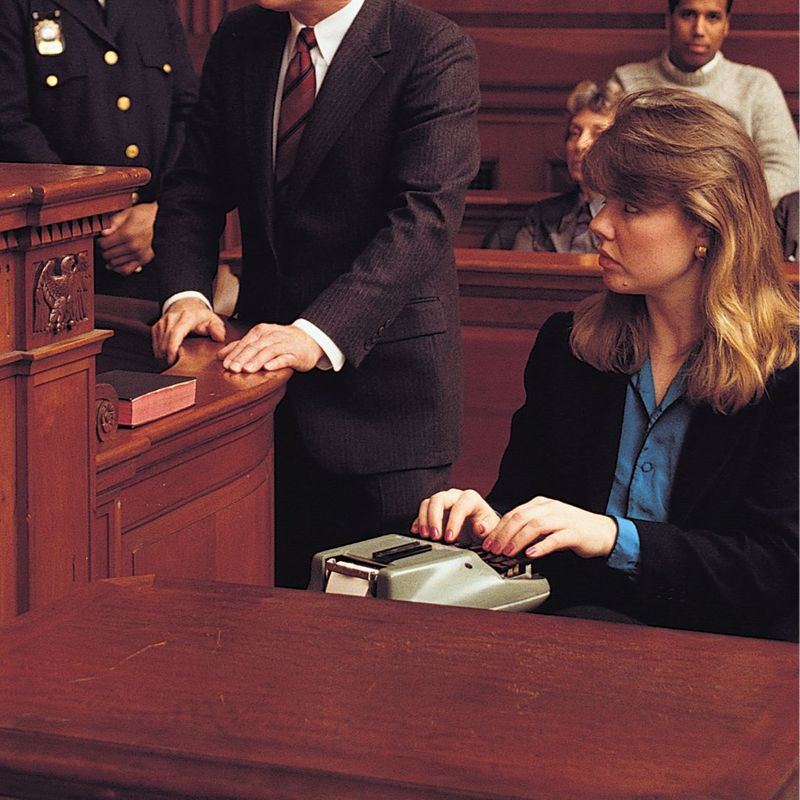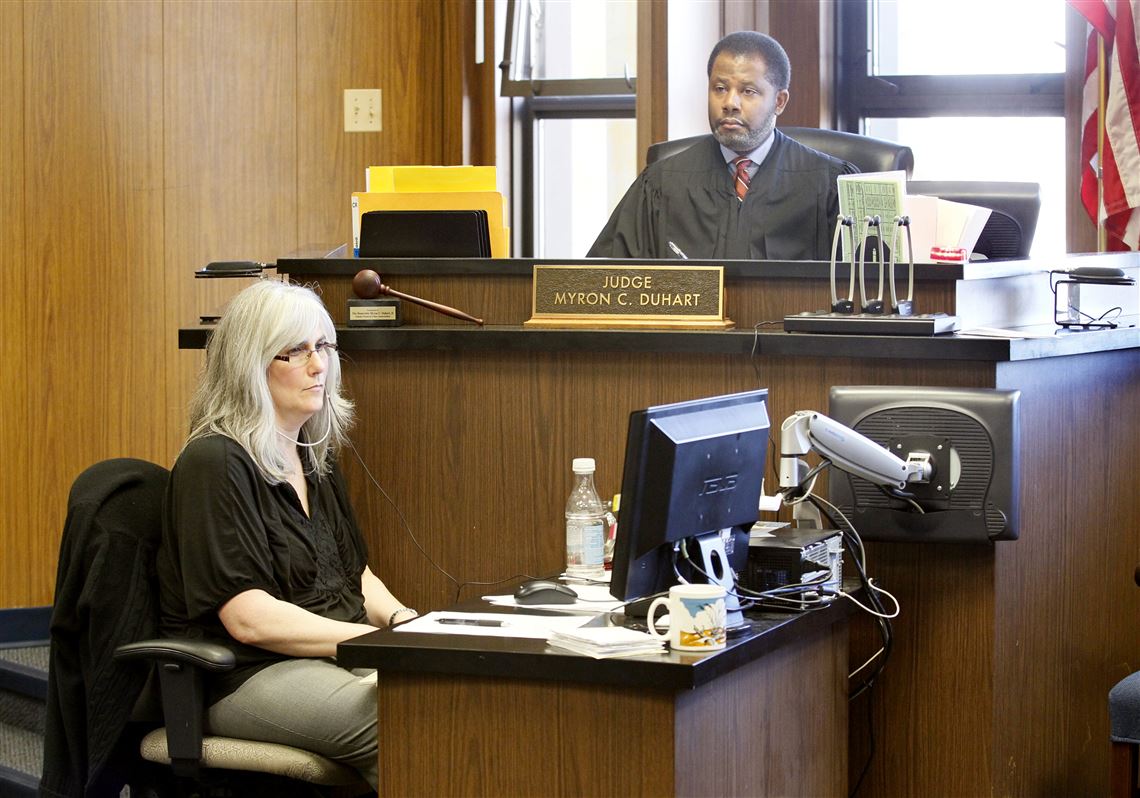Durham court reporting guide for new attorneys
Everything About Court Reporting: Vital Insights Into Its Significance in Regulation
Court reporting serves a crucial function within the lawful framework, supplying a reputable and exact record of process. Through innovative techniques and tools, stenotype reporter catch the nuances of statements and lawful dialogue. The relevance of their work prolongs beyond simple transcription. As the legal landscape develops, so too does the function of technology in court reporting. Recognizing these characteristics reveals deeper implications for justice and openness in the legal system.
The Duty of Court Reporters in the Legal System

Usually ignored, court press reporters play a vital duty in the legal system by guaranteeing a precise and verbatim document of proceedings. Their main obligation entails recording talked words throughout tests, depositions, and other legal events, which works as a main document for future referral. This documentation is important for appeals, as it provides the required details for assessing choices made by juries and judges.
Court press reporters have to have remarkable listening abilities and a deep understanding of lawful terminology to capture the nuances of testament and argumentation precisely. Their work contributes to transparency within the judicial procedure, permitting liability and fairness. Additionally, they facilitate accessibility to justice by making records available to involved parties, ensuring that every person has the possibility to assess the process. This way, stenotype reporter maintain the integrity of the legal system, reinforcing the importance of exact interaction in matters of law.
Techniques and Devices Made use of in Court Reporting
In court reporting, numerous techniques and tools improve the precision and performance of transcription. Stenography modern technology plays a significant duty, allowing press reporters to capture spoken words rapidly, while electronic recording techniques offer alternative options for documentation. Recognizing these tools is crucial for comprehending how court press reporters fulfill their important function in the legal system.
Stenography Modern Technology Overview
Stenography innovation functions as the foundation of modern court reporting, allowing precise and effective transcription of talked discussion. Utilizing specialized makers recognized as stenographs, stenotype reporter can catch speech at impressive speeds, commonly exceeding 200 words per min. These equipments employ an one-of-a-kind key-board format that enables numerous secrets to be pressed simultaneously, developing phonetic representations of words - durham court reporting. This method lessens the requirement for comprehensive punctuation and boosts transcription accuracy. Additionally, stenographers use numerous shorthand strategies and icons to further enhance the procedure, ensuring that no detail is ignored throughout process. The integration of stenography innovation not only fosters efficient communication in lawful settings yet likewise promotes the integrity of the judicial process by offering exact and dependable documents of conversations
Digital Recording Techniques
A boosting variety of court reporting specialists are transforming to electronic recording approaches to boost the accuracy and performance of their transcriptions. These strategies utilize sophisticated sound and video clip modern technology to capture proceedings in real-time. Digital recorders, usually paired with high-quality microphones, ensure that every word talked is maintained with clarity. Specialized software can record audio documents instantly, enabling for quicker turn-around times. Some experts incorporate twin recording systems for redundancy, ensuring no crucial details is lost. Additionally, electronic recordings can be easily indexed and looked, helping with speedy retrieval of specific sectors. As legal settings progress, embracing these electronic tools not only enhances the reporting procedure however also keeps the honesty of the document.
The Relevance of Precision in Transcription
Precision in transcription is essential in court reporting, as it ensures that legal documents show the real content of proceedings. This accuracy can considerably influence instance outcomes, impacting the decisions made by courts and judges. Maintaining high criteria of accuracy is extremely important in the legal profession.

Precision in Lawful Records
The legal system relies heavily on significant arguments and influential rhetoric, the real foundation of judicial proceedings exists in the accuracy of legal documents. Exact transcription is vital, as it assures that every question, statement, and judgment is recorded appropriately. Such accuracy offers numerous purposes, including offering a trusted reference for charm processes and keeping the honesty of the judicial system. Mistakes in transcription can lead to misunderstandings, misconceptions, and possibly destructive effects for all parties included. As a result, stenotype reporter have to possess outstanding abilities and interest to detail, as their work straight influences the quality of lawful papers. Inevitably, the precision of legal records underpins the trust fund positioned in the judicial procedure, strengthening the value of precise transcription.

Influence on Instance Outcomes
When lawful process unravel, the precision of transcription frequently dictates the trajectory of a case's end result. Precise court reporting assurances that every word spoken is efficiently caught, making it possible for judges, juries, and lawyers to make educated decisions based on the document. Errors in transcription can result in misunderstandings, misconceptions, and potentially unjustified judgments. The integrity of lawful files relies greatly on the precision of these records, as they function as the structure for charms and further lawsuits. In high-stakes cases, where the effects are extensive, the role of a stenotype reporter becomes much more critical. Preserving strenuous standards in transcription not only sustains the legal process yet also maintains the concepts of justice and fairness in the court.
Court Reporting in Various Legal Settings
Court reporting plays an essential function throughout different lawful setups, guaranteeing that process are accurately documented for future recommendation. In criminal court, court press reporters transcribe statements, proof, and judicial judgments, which are essential for charms and instance reviews. In civil litigation, precise records promote the discovery process and offer a trusted document for test proceedings. Management hearings usually count on court reporters to maintain an official document, ensuring openness and liability in governmental procedures. Family members courts additionally benefit from court reporting, as exact documents of proceedings can affect custodianship choices and negotiations. Furthermore, depositions in pre-trial phases need exact recordings to catch the subtleties of witness statements, which may be considerable fit case techniques. In general, court reporting functions as a cornerstone in the lawful system, cultivating fairness and clarity across varied see this judicial settings.
The Influence of Modern Technology on Court Reporting
As technology proceeds to evolve, its impact on court reporting has actually become significantly substantial. Innovations such as digital recording, real-time transcription software, and expert system have actually transformed typical practices. Digital audio recorders currently catch court proceedings with exceptional clearness, permitting stenotype reporter to focus on subtleties and context as opposed to solely on inputting. Real-time transcription innovations make it possible for instant accessibility to transcripts, advertising effectiveness and enhancing partnership among attorneys. Furthermore, artificial knowledge tools are being incorporated to assist in the transcription procedure, reducing human mistake and expediting paper generation. Despite these improvements, the important abilities of stenotype reporter stay invaluable, as they supply a nuanced understanding of legal language and court characteristics. Inevitably, innovation enhances rather than changes the knowledge of court press reporters, ensuring that the stability and precision of lawful paperwork are promoted in an increasingly digital landscape.
Occupation Opportunities and Pathways in Court Reporting
The evolution of technology in court reporting has actually opened a selection of career chances for striving specialists in the field. Typically, court press reporters were largely in charge of transcribing legal procedures. Improvements such as electronic recording and real-time reporting have expanded their roles.
Today, court reporters can focus on areas such as captioning for television programs, supplying transcription solutions for lawful firms, and operating in the business industry for meetings or depositions - durham court reporting. Additionally, opportunities in remote reporting, particularly due Get the facts to the rise of virtual courtrooms, have come to be significantly widespread
Educational pathways include official training programs, accreditation training courses, and proceeding education and learning to stay upgraded with technological modifications. Networking within specialist and lawful organizations also plays a considerable role in career innovation. On the whole, the varied opportunities in court reporting reflect the vibrant nature of the legal profession and the raising need for proficient experts.
The Future of Court Reporting in an Evolving Legal Landscape
How will the duty of court reporting adjust as the legal landscape remains to progress? As technology breakthroughs, court reporting is likely to embrace ingenious tools such as man-made knowledge and real-time transcription software application. These advancements might enhance precision and efficiency in recording legal process. Furthermore, the increasing occurrence of remote hearings necessitates that court press reporters become skilled in digital systems, ensuring smooth documentation no matter area.
At the same time, court press reporters will need to adjust their abilities to manage new kinds of cases, such as those including cyber regulation and copyright disputes, which require specialized understanding. In addition, the demand for immediate accessibility to records will certainly push experts to provide quicker turn-around times without compromising high quality. Inevitably, the future of court reporting will certainly depend upon a balance in between typical skills and technological assimilation, ensuring that the stability of the lawful procedure continues to be intact in an increasingly digital world.
Often Asked Questions
How Do Stenotype Reporter Take Care Of Delicate Details Throughout Proceedings?

What Certifications Are Needed to Come To Be a Stenotype Reporter?
To end up being a stenotype reporter, people commonly require a senior high school diploma, specialized training from an accredited program, effectiveness in shorthand or voice writing, and accreditation or licensure, depending upon state requirements and laws.
Are Court Reporters Required to Have a Permit?
Stenotype reporter are often called for to acquire a certificate, depending on the Bonuses jurisdiction. Licensing warranties that they satisfy specific criteria of proficiency and professionalism, which is crucial for preserving the integrity of legal process.
Exactly How Do Stenotype Reporter Handle Various Accents and Dialects?
Court press reporters handle various accents and dialects via comprehensive training, technique, and experience with numerous speech patterns. They typically make use of specialized software application and strategies to accurately record spoken words, making sure clarity and accuracy in their transcripts.
What Is the Typical Wage for a Stenotype Reporter?
The ordinary salary for a stenotype reporter differs by location and experience, commonly ranging from $50,000 to $80,000 each year. In high-demand areas, incomes can go beyond $100,000, mirroring the occupation's value and specialized abilities.
Often neglected, court press reporters play a necessary function in the legal system by making sure a verbatim and accurate record of process. In criminal court, court press reporters transcribe testaments, evidence, and judicial judgments, which are crucial for charms and instance testimonials. Family courts also benefit from court reporting, as precise paperwork of process can affect custodianship choices and negotiations. Commonly, court press reporters were primarily responsible for transcribing legal proceedings. Today, court reporters can specialize in areas such as captioning for television broadcasts, providing transcription services for legal companies, and functioning in the company field for depositions or conferences.